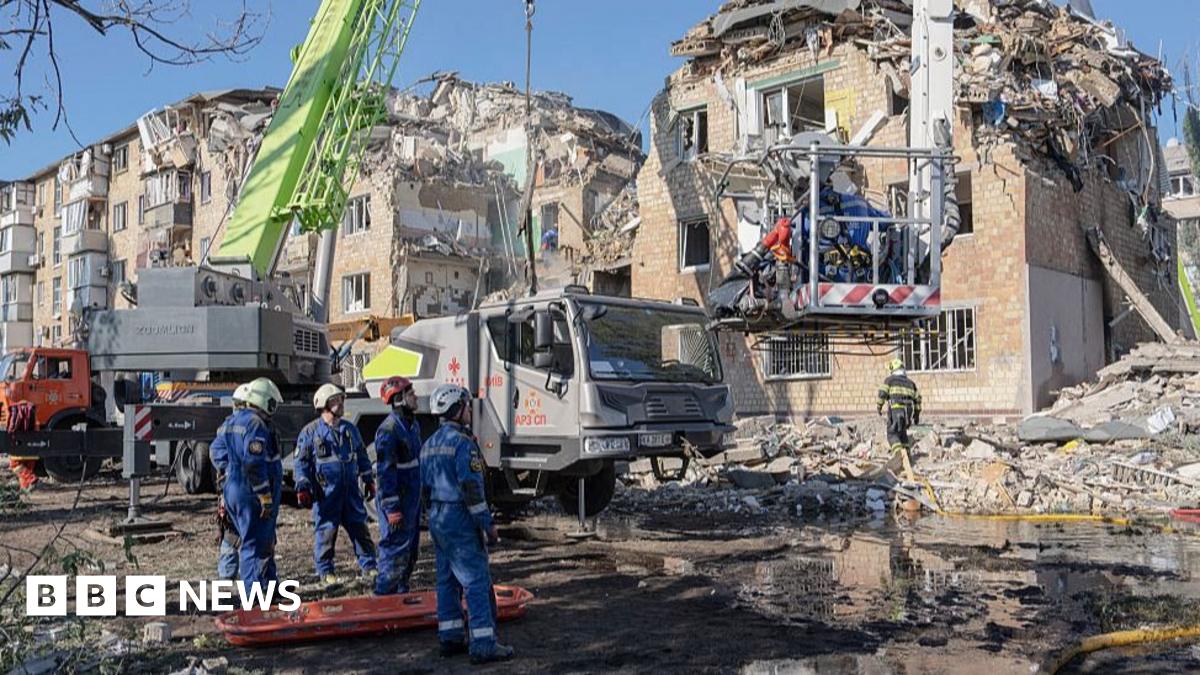Diplomatic efforts to end the conflict appear to have ground to a haltpublished at 18:07 British Summer Time 28 August
18:07 BST 28 August
 Paul Adams
Paul Adams
Diplomatic correspondent
European leaders won’t have been under any illusions that a diplomatic breakthrough was imminent. But that doesn’t lessen the sense of shock and anger.
As the Russian ambassador in London was summoned to the Foreign Office, the prime minister, Sir Keir Starmer, said President Putin was sabotaging hopes of peace.
Speaking in Brussels, in front of a large image of the EU’s damaged premises in Kyiv, the president of the European Commission, Ursula von der Leyen, said she, too, was outraged.
Other furious reactions came from France and Germany. The German chancellor, Friedrich Merz, said last night’s attacks showed what he called “the growing unscrupulousness of the Russian regime”.
The White House’s Ukraine envoy, Keith Kellog, described the airstrikes as egregious and a threat to President Trump’s attempts at a peace deal.
In Moscow, the Kremlin spokesman, Dmitri Peskov, said Russia was still interested in talks, and he accused Ukraine of attacking Russia’s civilian infrastructure – two more Russian oil refineries were hit last night, part of an ongoing campaign by Kyiv.
But since Donald Trump’s high-profile interventions – the summit in Alaska and subsequent gathering of EU leaders in Washington – diplomatic efforts to end the conflict appear to have ground to a halt.
